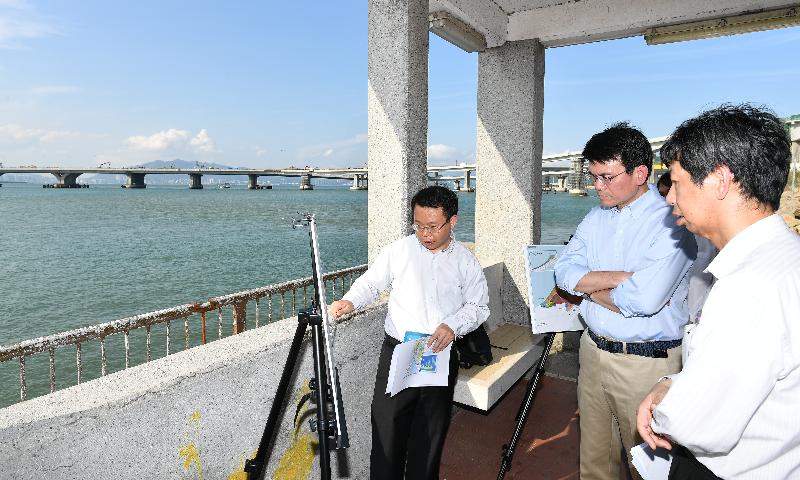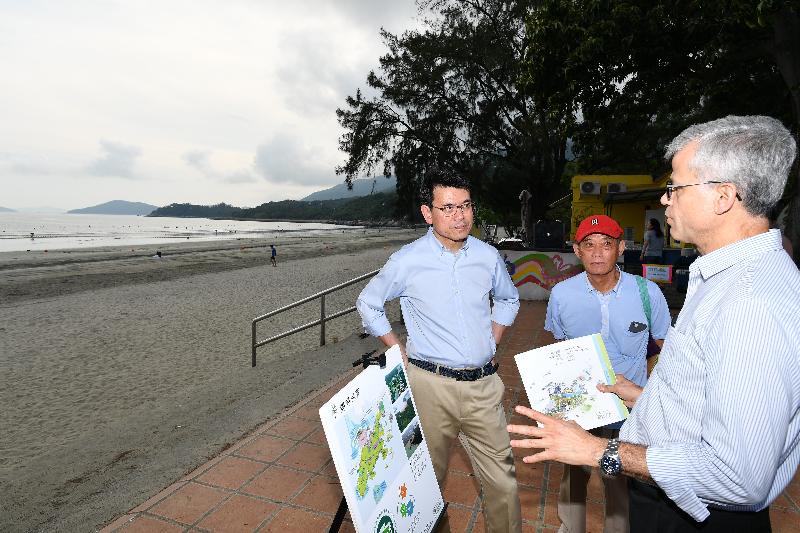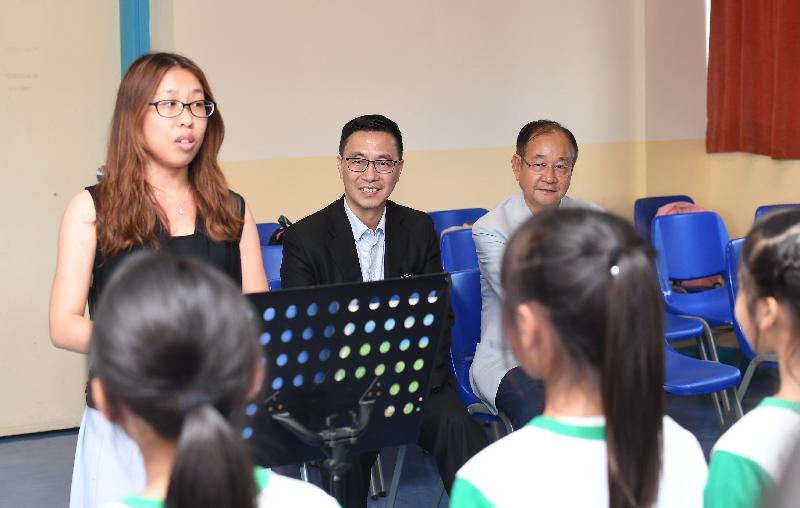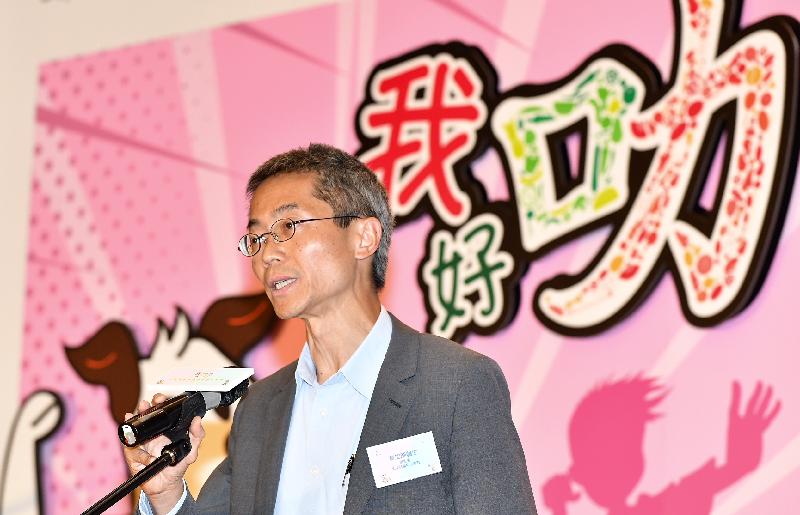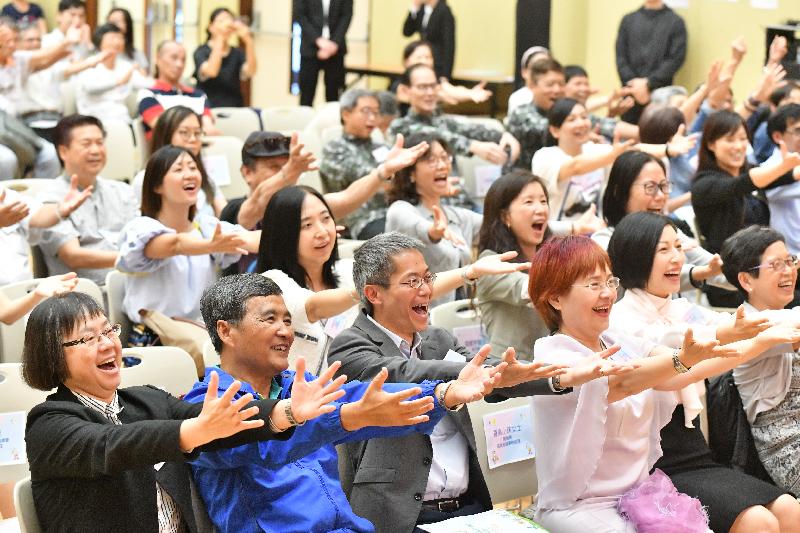The Department of Health (DH) today (May 17) presented commendations to over 360 community members and 100 participating organisations at the "I'm So Smart" Community Health Promotion Programme Recognition Ceremony for their active participation in promoting an alcohol-free healthy diet emphasising the harmful effects of alcohol, and echoing World Health Day 2017's theme on depression to urge the community to pay attention to mental health.
Addressing the recognition ceremony, the Controller of the Centre for Health Protection (CHP) of the DH, Dr Wong Ka-hing, said that, like many countries and regions, Hong Kong faces an increasing threat from non-communicable diseases (NCDs). Lack of physical activity, inadequate intake of fruit and vegetables, alcohol drinking and smoking are key behavioural risk factors responsible for NCDs. In 2018/19, the Programme will continue to promote an active lifestyle with regular physical activity and less sedentary behaviour as well as a healthy diet with adequate intake of fruit and vegetables and which at the same time is free from alcohol.
​ According to the findings of the DH's Population Health Survey (PHS) 2014/15, among people aged 15 or above the average duration of sedentary behaviour on a typical day was about seven hours, and nearly 20 per cent of respondents even indicated that they spend 10 hours or more sitting or reclining in a day. Ongoing evidence suggests that regardless of physical activity level, prolonged sitting or too long total sitting time may also increase the risks of various NCDs such as cardiovascular disease and type 2 diabetes.
​ Inadequate fruit and vegetable intake is also a key risk factor for many NCDs. The World Health Organization recommends consumption of at least five servings of fruit and vegetables a day. However the PHS found that among people aged 15 or above, less than 6 per cent of respondents said that they consume five or more servings of fruit and vegetables a day. While alcohol use is an important causal factor of more than 200 diseases (including liver diseases, cancer and stroke) and injury conditions, the survey observed that over three-fifths of them have an alcohol drinking habit.
​ Dr Wong said, "To address the threats of NCDs, earlier this month the Government launched 'Towards 2025: Strategy and Action Plan to Prevent and Control Non-communicable Diseases in Hong Kong' (SAP), with a focus on four NCDs (namely cancers, cardiovascular diseases, diabetes and chronic respiratory diseases) and four shared behavioural risk factors. These four shared behavioural risk factors, namely unhealthy diet, physical inactivity, tobacco use and harmful use of alcohol, have significant impact on population health and they are potentially preventable or modifiable.
​ "The SAP sets out nine targets to be achieved by 2025 and put forward a systematic portfolio of initiatives to prevent and control NCDs. While the Government will continue to take a leading role in bringing the agenda forward, successful prevention and control of NCDs relies on collaboration and participation of every sector and all members of the community. We shall continue to work in close partnership with our partners to build a health-enhancing conducive environment and promote the health of all Hong Kong people. Together, we can make ourselves healthier and Hong Kong a healthier city."
The "I'm So Smart" Community Health Promotion Programme was launched in 2012 and aims at enhancing community collaboration to promote healthy lifestyles with healthy eating and regular physical activity. Over 100 organisations participated in the Programme last year, including the Hong Kong Housing Authority (HKHA), Estate Management Advisory Committees of public housing estates under the HKHA, Healthy Cities Projects and over 60 non-governmental organisations. The participating organisations held related activities with a total attendance of more than 74 000 last year.
Other officiating guests at today's ceremony included the Head of the Surveillance and Epidemiology Branch of the DH's CHP, Dr Regina Ching; the Senior Housing Manager of the Housing Department, Mrs Law Ko Siu-chu; the Vice-President of the Physical Fitness Association of Hong Kong, China, Mr Kong Fung; the Training and Development Officer of the Hong Kong Dietitians Association, Ms Sharon Chan; and the Chairman of the Division of Clinical Psychology, the Hong Kong Psychological Society, Dr Rachel Poon.

